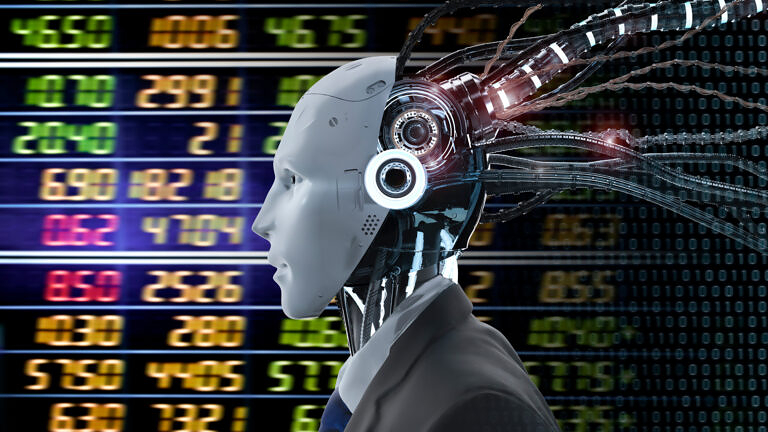AI and UN SDGs
How AI Is Accelerating the UN Sustainable Development Goals (SDGs)
Artificial Intelligence (AI) is not just revolutionizing technology—it’s playing a pivotal role in tackling the world’s most pressing challenges. From climate change to poverty reduction, AI is increasingly being used to advance the United Nations Sustainable Development Goals (SDGs).
In this article, we’ll explore how AI supports the UN SDGs, real-world use cases, and what the future holds for AI-powered sustainable development.
What Are the UN Sustainable Development Goals (SDGs)?
The United Nations Sustainable Development Goals (SDGs) are a set of 17 global objectives established in 2015 to build a more sustainable, equitable, and prosperous world by 2030.
These goals cover a wide range of issues, including:
🏥 Good Health and Well-Being
🌱 Climate Action
🎓 Quality Education
💧 Clean Water and Sanitation
⚖️ Reduced Inequalities
🏘️ Sustainable Cities and Communities
To achieve these goals, governments, organizations, and innovators are turning to AI technologies that can process data, automate tasks, and generate intelligent insights.
1. AI for Good Health and Well-Being (SDG 3)
AI in healthcare is transforming diagnosis, treatment, and patient care:
🧠 AI algorithms detect diseases like cancer, diabetes, and Alzheimer’s earlier and with greater accuracy.
💊 Predictive models track disease outbreaks and recommend proactive measures.
🩺 AI-powered chatbots are helping with mental health support, especially in underserved communities.
Example: In Rwanda, AI-assisted mobile diagnostics are helping reduce maternal mortality by enabling early risk detection in pregnancy.
2. AI and Quality Education (SDG 4)
AI is improving access to education—especially in remote or under-resourced areas.
🧑🏫 Personalized learning platforms use AI to adapt lessons to student needs.
🌍 Language translation tools powered by AI are breaking down barriers for non-native speakers.
📚 AI chatbots are used in tutoring and test prep, increasing student engagement and retention.
Example: Apps like Duolingo and Khan Academy use AI to enhance learning experiences for millions globally.
3. AI and Gender Equality (SDG 5)
AI can support gender equity by identifying discrimination patterns and promoting inclusion:
📊 Analyzing hiring trends and pay gaps using AI tools helps promote fair labor practices.
🧠 AI can identify and remove biases in algorithms, promoting a more equal digital world.
📢 AI-powered platforms amplify women’s voices and stories in media and education.
Example: UN Women uses AI for data analysis in gender-based violence reports, helping shape better policy responses.
4. AI for Clean Water and Sanitation (SDG 6)
AI and IoT are enabling better water resource management:
💧 AI-powered sensors monitor water quality and distribution in real-time.
📈 Predictive analytics help identify leaks or contamination before they become crises.
🛰️ Satellite-based AI tools are tracking water sources and forecasting droughts.
Example: In India, AI systems are helping communities manage groundwater sustainably by tracking usage and weather patterns.
5. AI and Affordable Clean Energy (SDG 7)
AI is playing a key role in transforming the energy sector:
⚡ AI optimizes renewable energy grids by forecasting demand and production.
☀️ Solar and wind farms use AI to increase efficiency and reduce downtime.
🧠 AI enables smart meters and home energy systems to reduce waste.
Example: Google DeepMind’s AI helped reduce cooling energy in data centers by 40%, contributing to energy efficiency.
6. AI for Decent Work and Economic Growth (SDG 8)
Despite fears around automation, AI is also creating new job opportunities and driving economic inclusion:
🤖 AI handles repetitive tasks, freeing workers for more creative or strategic roles.
💼 Platforms like LinkedIn use AI to connect talent with opportunities worldwide.
🧾 AI is streamlining digital payments and microfinance, helping small businesses grow.
Example: In Kenya, AI is used in microloans, analyzing non-traditional credit data to offer loans to the unbanked.
7. AI and Sustainable Cities (SDG 11)
Urban areas are using AI to become smarter and more sustainable:
🚦 AI controls traffic flow and reduces congestion in real time.
🗑️ Smart waste management systems use AI for optimized collection routes.
🌆 Urban planners use AI-driven models to design more efficient infrastructure.
Example: Cities like Singapore and Barcelona use AI for smart transportation, air quality monitoring, and public safety.
8. AI in Climate Action (SDG 13)
AI is a game-changer in the fight against climate change:
🌍 AI-powered models predict climate patterns, wildfires, and sea-level rise.
🛰️ Remote sensing and satellite imagery processed by AI track deforestation and carbon emissions.
♻️ AI is used to optimize supply chains and reduce industrial waste.
Example: Microsoft’s AI for Earth initiative is using machine learning to model climate risk and biodiversity loss.
9. Challenges and Ethical Considerations
While AI offers incredible potential, it must be used responsibly:
⚖️ Bias in algorithms can reinforce social inequalities.
🛡️ Privacy concerns must be addressed, especially in healthcare and education.
💼 AI systems should be designed to augment human jobs, not replace them unfairly.
The UN and organizations like UNESCO and ITU are working on AI governance frameworks to ensure fair and ethical use.
10. Partnerships and Global Collaboration
Achieving the SDGs with AI requires collaboration between:
🌐 Governments and UN agencies
🧪 Research institutions and universities
💡 Tech companies and startups
🧑🌾 NGOs and grassroots organizations
AI for Good, an initiative by the International Telecommunication Union (ITU), is a global platform driving these collaborations forward.
Conclusion: AI for a Better, Sustainable Future
AI is more than just a technological advancement—it’s a powerful ally in achieving global sustainability. From eradicating poverty to combating climate change, AI-driven solutions are already making a tangible impact across all 17 SDGs.
As we move toward 2030, it is critical to invest in responsible AI development, promote equity and inclusion, and foster global cooperation.
🌍 Let’s Build a Smarter, Fairer World with AI
Whether you’re a developer, policymaker, business leader, or concerned global citizen, now is the time to embrace AI for social good. Let’s ensure that innovation uplifts people, planet, and prosperity—together.

